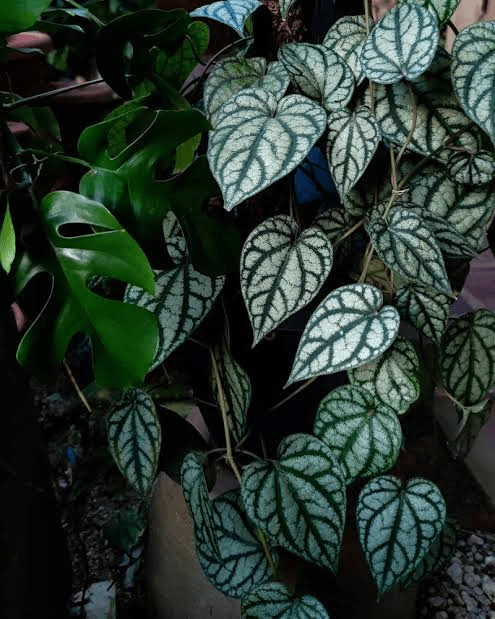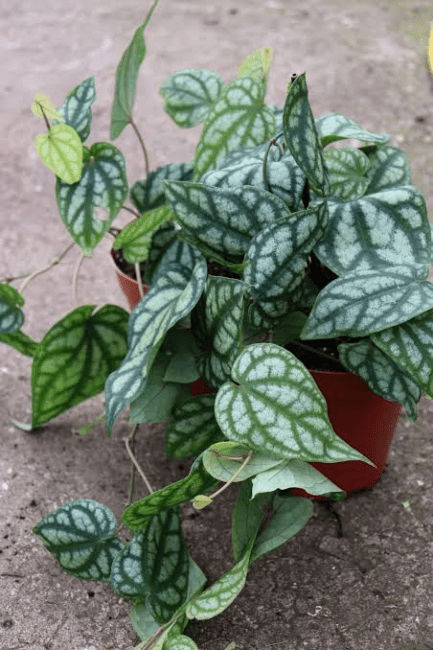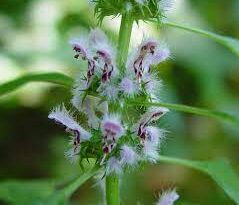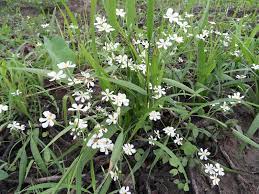18 Medicinal Health Benefits of Piper Sylvaticum (Forest Pepper)
Piper sylvaticum, commonly known as forest pepper, is a climbing pepper plant native to the Himalayas. It is a rare and exotic plant that is not commonly cultivated or used for culinary purposes.
Forest pepper is a vigorous climber that can reach up to 10 meters in height. It has long, slender stems and heart-shaped leaves. The leaves are dark green on top and lighter green underneath. They are also slightly hairy and have a peppery aroma.
Forest pepper flowers are small and inconspicuous. They are produced in clusters on long spikes. The flowers are white or pale green in color and have a faint sweet scent.
The fruits of forest pepper are small, round berries that are initially green in color. As they ripen, they turn red and then black. The berries contain a single seed and have a peppery flavor.
Forest pepper is not commonly used as a culinary spice. However, the berries can be dried and ground into a powder that can be used to season food. The powder has a mild peppery flavor with a hint of sweetness.
Forest pepper is also used in traditional medicine. The leaves and berries are used to treat a variety of ailments, including indigestion, diarrhea, and respiratory infections.
The Botanical Description of Piper Sylvaticum
1. Overview of Piper Sylvaticum: Piper Sylvaticum, commonly known as the forest pepper or wild pepper, is a perennial flowering plant that belongs to the Piperaceae family. It is renowned for its unique botanical characteristics, making it a fascinating subject for plant enthusiasts and researchers alike.
2. Leaves and Stems: The leaves of Piper Sylvaticum are broad, glossy, and dark green. They are characterized by prominent veins and a waxy texture, which helps reduce water loss. The plant’s stems are robust and woody, providing support for the lush foliage. These leaves are not only visually appealing but also possess significant medicinal properties, making them valuable in traditional herbal medicine practices.
3. Growth Habit: Piper Sylvaticum exhibits a bushy growth habit, forming dense clusters of foliage in its natural habitat. Its adaptability to different ecological conditions allows it to thrive in a variety of settings, including forests and cultivated gardens. This versatility contributes to its widespread presence in various geographic regions.
4. Flowers and Fruits: The plant produces small, inconspicuous flowers that are arranged in clusters. These flowers give rise to small, round fruits, which are initially green and eventually turn red when ripe. These fruits are often used for culinary purposes, adding a unique flavor to traditional dishes.
The Geographic Distribution of Piper Sylvaticum
1. South American Rainforests: Piper Sylvaticum is predominantly found in the lush rainforests of South America. Countries like Brazil, Colombia, and Peru are known for their rich biodiversity, and this plant is a part of the diverse flora that thrives in these regions.
2. Southeast Asian Forests: While its primary distribution is in South America, Piper Sylvaticum can also be found in the dense forests of Southeast Asia. Countries like Malaysia, Indonesia, and Thailand harbor populations of this plant.
3. African Tropical Regions: In some African tropical regions, particularly in countries like Cameroon, the Congo, and Ghana, Piper Sylvaticum has also been identified. Its presence adds to the botanical diversity of these areas.
4. Central American Rainforests: Central American countries such as Costa Rica and Panama are home to this plant as well. The humid rainforests provide an ideal habitat for Piper Sylvaticum to flourish.
The geographic distribution of Piper Sylvaticum spans various continents, highlighting its adaptability to diverse environmental conditions. Its presence in South American rainforests, Southeast Asian forests, African tropical regions, and Central American rainforests showcases its ability to thrive in different geographic settings. This wide distribution contributes to its significance in various cultures and ecosystems.
Read Also: 4 Medicinal Health Benefits Of Pelargonium graveolens (Rose Geranium)
The Medicinal Health Benefits of Piper Sylvaticum (Forest Pepper)

1. Anti-Inflammatory Properties: Piper Sylvaticum is recognized for its anti-inflammatory effects. Compounds like piperine in this plant may help reduce inflammation and alleviate conditions associated with chronic inflammation.
2. Antioxidant Effects: The plant contains flavonoids and essential oils that exhibit antioxidant properties. These antioxidants protect cells from oxidative stress, reducing the risk of chronic diseases.
3. Digestive Aid: Piper Sylvaticum is known for promoting healthy digestion. Piperine and other compounds in the plant may enhance nutrient absorption and reduce gastrointestinal discomfort.
4. Pain Relief: The alkaloids in Piper Sylvaticum, including piperine, have analgesic properties, making it effective for pain relief in traditional herbal medicine.
5. Immune Support: The plant’s vitamin and mineral content, especially vitamin C, contributes to immune system support. Regular consumption may help enhance immunity.
6. Skin Health: Piper Sylvaticum’s vitamins and antioxidants can improve skin health by promoting a healthy complexion and reducing the signs of aging.
7. Respiratory Health: The plant’s antimicrobial properties have led to its use in traditional remedies for respiratory conditions like coughs and colds.
8. Blood Sugar Control: Piper Sylvaticum may help regulate blood sugar levels, potentially benefiting individuals with diabetes.
9. Cardiovascular Health: Antioxidants in the plant may have a positive impact on heart health by reducing the risk of cardiovascular diseases.
10. Wound Healing: Topical application of Piper Sylvaticum has been used to facilitate wound healing, with its antimicrobial properties helping to prevent infections.
11. Anti-Cancer Properties: While more research is needed, some studies suggest that Piper Sylvaticum may possess anti-cancer properties due to its unique phytochemical content.
12. Gastrointestinal Disorders: The plant’s digestive benefits extend to addressing gastrointestinal disorders like indigestion and bloating.
13. Anti-Bacterial Properties: Piper Sylvaticum’s antimicrobial properties can help combat bacterial infections in traditional medicine.
14. Relaxation and Stress Relief: Some traditional practices utilize Piper Sylvaticum for its potential to promote relaxation and alleviate stress.
15. Nutrient Absorption: Piperine in the plant has been studied for its role in enhancing nutrient absorption, potentially improving overall health.
16. Anti-Aging: The antioxidants in Piper Sylvaticum may help reduce the signs of aging by protecting the skin from free radical damage.
17. Antispasmodic Effects: The plant is used traditionally as an antispasmodic agent to alleviate muscle spasms and cramps.
18. Bone Health: Some studies suggest that the plant’s mineral content, including calcium, may contribute to improved bone health.
The Methods of Usage to Achieve the Provided Health Benefits of Piper Sylvaticum (Forest Pepper)
1. Culinary Use: Incorporating Piper Sylvaticum leaves and fruits into your meals is a common way to enjoy its health benefits. They can be added to salads, soups, and various dishes for flavor and nutrition.
2. Herbal Infusions: Preparing herbal infusions or teas using Piper Sylvaticum leaves is an effective method for obtaining its medicinal advantages. Steep the leaves in hot water and enjoy the infusion.
3. Topical Applications: For wound healing and skin health, crush the leaves and create a paste for topical application. This can help accelerate the healing process and improve skin conditions.
4. Dietary Supplements: Piper Sylvaticum supplements, available in various forms, provide a convenient way to incorporate its health benefits into your daily routine. However, it’s essential to consult with a healthcare professional before using supplements.
The Side Effects of Using Piper Sylvaticum Medicinal Plant
1. Allergic Reactions: Some individuals may experience allergic reactions to Piper Sylvaticum, which can manifest as skin rashes, itching, or respiratory symptoms. It’s advisable to conduct a patch test if you are using it for the first time.
2. Gastrointestinal Discomfort: Excessive consumption of Piper Sylvaticum may lead to gastrointestinal discomfort, including nausea and diarrhea. Using it in moderation is recommended.
3. Drug Interactions: Piper Sylvaticum may interact with certain medications, especially those with antiplatelet or anticoagulant effects. Consult a healthcare professional if you are on medication.
4. Pregnancy and Breastfeeding: Pregnant and breastfeeding women should use Piper Sylvaticum with caution. While it is generally considered safe, it’s essential to consult with a healthcare provider before including it in their diet.
5. Low Blood Sugar: If you have diabetes and are using medications to lower blood sugar, monitor your levels closely when consuming Piper Sylvaticum, as it may enhance the glucose-lowering effects.
6. Excessive Consumption: As with any herb or plant, excessive consumption can lead to adverse effects. It’s important to use Piper Sylvaticum in moderation to avoid potential side effects.
7. Skin Sensitivity: Some individuals may experience skin sensitivity when applying Piper Sylvaticum topically. If you notice skin irritation or discomfort, discontinue use.
8. Digestive Disturbances: In rare cases, Piper Sylvaticum may cause digestive disturbances such as indigestion or bloating. Using it in moderation can help prevent these issues.
9. Respiratory Reactions: If you have a history of respiratory allergies or asthma, be cautious when using Piper Sylvaticum, as it may trigger respiratory reactions in some individuals.
10. Interaction with Blood Pressure Medications: Individuals on blood pressure medications should consult with a healthcare professional before using Piper Sylvaticum, as it may interact with these medications.
11. Potential Sensitivity to Spices: Some people may be sensitive to the spiciness of Piper Sylvaticum. It’s advisable to start with a small quantity to determine your tolerance.
12. Interaction with Anti-Inflammatory Medications: Piper Sylvaticum’s anti-inflammatory properties may interact with certain medications. Consult with a healthcare provider if you are taking anti-inflammatory drugs.
13. Caution in Children: Parents should use caution when giving Piper Sylvaticum to children, especially infants. Consider age-appropriate forms of use and consult with a pediatrician if needed.
14. Stomach Ulcers: If you have a history of stomach ulcers or gastrointestinal conditions, consult with a healthcare provider before using Piper Sylvaticum, as it may exacerbate these conditions.
15. Monitoring Blood Sugar: If you have diabetes, closely monitor your blood sugar levels when incorporating Piper Sylvaticum into your diet, as it may affect glucose levels.
16. Interaction with Blood-Thinning Medications: Individuals on blood-thinning medications should exercise caution when using Piper Sylvaticum, as it may enhance the effects of these medications.
17. Potential Interaction with Other Herbal Remedies: When combining Piper Sylvaticum with other herbal remedies or supplements, consult with a healthcare provider, as interactions may occur.
18. Dosage Considerations: The appropriate dosage of Piper Sylvaticum may vary depending on individual factors and the intended use. Always follow the guidance of a healthcare professional or traditional healers for specific dosage recommendations.
Read Also: 6 Medicinal Health Benefits Of Sisyrinchium bellum (Blue-Eyed Grass)
The Scientific Research and Studies of Piper Sylvaticum

1. Anti-Inflammatory Properties: Numerous scientific studies have explored the anti-inflammatory effects of Piper Sylvaticum. Research indicates that the plant’s compounds, such as piperine, exhibit potential in reducing inflammation by inhibiting specific inflammatory pathways.
2. Antioxidant Effects: The antioxidant properties of Piper Sylvaticum have been the subject of scientific investigation. These antioxidants play a crucial role in protecting cells from oxidative stress and reducing the risk of chronic diseases.
3. Digestive Aid: Scientific research has examined the plant’s role as a digestive aid. Compounds like piperine have been studied for their ability to enhance digestive processes and improve nutrient absorption.
4. Pain Relief: Piper Sylvaticum’s analgesic properties, attributed to alkaloids like piperine, have been explored in scientific studies, supporting its traditional use for pain relief.
5. Immune Support: Studies suggest that the vitamins and minerals in Piper Sylvaticum, particularly vitamin C, contribute to immune system support, potentially enhancing immunity.
6. Skin Health: The potential of Piper Sylvaticum in promoting healthy skin has been investigated in scientific research. Vitamins and antioxidants in the plant may have positive effects on skin texture and appearance.
7. Respiratory Health: Scientific studies have examined the antimicrobial properties of Piper Sylvaticum in the context of respiratory health, supporting its traditional use in addressing respiratory conditions.
8. Blood Sugar Control: Research has explored the plant’s potential in regulating blood sugar levels, indicating potential benefits for individuals with diabetes.
9. Cardiovascular Health: The antioxidant properties of Piper Sylvaticum have been studied for their potential impact on heart health, including reducing the risk of cardiovascular diseases.
10. Wound Healing: Scientific investigations have examined the wound-healing properties of Piper Sylvaticum when applied topically. Its antimicrobial activity may help prevent infections and accelerate the healing process.
11. Anti-Cancer Properties: Preliminary research has indicated the potential anti-cancer properties of Piper Sylvaticum, although more extensive studies are needed to confirm these benefits.
12. Gastrointestinal Disorders: Scientific research has explored the plant’s effectiveness in addressing gastrointestinal disorders such as indigestion and bloating.
13. Anti-Bacterial Properties: Studies have investigated Piper Sylvaticum’s antimicrobial properties, particularly its potential in combatting bacterial infections.
14. Relaxation and Stress Relief: Scientific studies have explored the plant’s potential in promoting relaxation and stress relief in traditional practices.
15. Nutrient Absorption: Piperine in Piper Sylvaticum has been studied for its role in enhancing nutrient absorption, which may have implications for overall health.
16. Anti-Aging: Research has investigated the anti-aging potential of Piper Sylvaticum, particularly in protecting the skin from free radical damage.
17. Antispasmodic Effects: Scientific studies have explored the use of Piper Sylvaticum as an antispasmodic agent to alleviate muscle spasms and cramps.
18. Bone Health: Some studies suggest that the plant’s mineral content, including calcium, may contribute to improved bone health.
The Safety Precautions and Recommendations in Using Piper Sylvaticum Medicinal Plant
1. Allergic Reactions: Individuals should be cautious when using Piper Sylvaticum for the first time, as allergic reactions are possible. Conduct a patch test and discontinue use if you experience any adverse effects.
2. Gastrointestinal Discomfort: Excessive consumption of Piper Sylvaticum may lead to gastrointestinal discomfort, including nausea and diarrhea. Use it in moderation.
3. Drug Interactions: The plant may interact with certain medications, especially those with antiplatelet or anticoagulant effects. Consult a healthcare professional if you are on medication.
4. Pregnancy and Breastfeeding: Pregnant and breastfeeding women should seek medical advice before incorporating Piper Sylvaticum into their diet. While generally considered safe, caution is advisable.
5. Low Blood Sugar: If you have diabetes and are taking medications to lower blood sugar, monitor your glucose levels closely when consuming Piper Sylvaticum, as it may enhance the glucose-lowering effects.
6. Excessive Consumption: As with any herb or plant, excessive consumption should be avoided to prevent potential side effects. Use Piper Sylvaticum in moderation.
7. Skin Sensitivity: Some individuals may experience skin sensitivity when applying Piper Sylvaticum topically. If you notice skin irritation or discomfort, discontinue use.
8. Digestive Disturbances: In rare cases, Piper Sylvaticum may cause digestive disturbances such as indigestion or bloating. Using it in moderation can help prevent these issues.
9. Respiratory Reactions: If you have a history of respiratory allergies or asthma, be cautious when using Piper Sylvaticum, as it may trigger respiratory reactions in some individuals.
10. Interaction with Blood Pressure Medications: Individuals on blood pressure medications should consult with a healthcare professional before using Piper Sylvaticum, as it may interact with these medications.
11. Potential Sensitivity to Spices: Some people may be sensitive to the spiciness of Piper Sylvaticum. It’s advisable to start with a small quantity to determine your tolerance.
12. Interaction with Anti-Inflammatory Medications: Piper Sylvaticum’s anti-inflammatory properties may interact with certain medications. Consult with a healthcare provider if you are taking anti-inflammatory drugs.
13. Caution in Children: Parents should use caution when giving Piper Sylvaticum to children, especially infants. Consider age-appropriate forms of use and consult with a pediatrician if needed.
14. Stomach Ulcers: If you have a history of stomach ulcers or gastrointestinal conditions, consult with a healthcare provider before using Piper Sylvaticum, as it may exacerbate these conditions.
15. Monitoring Blood Sugar: If you have diabetes, closely monitor your blood sugar levels when incorporating Piper Sylvaticum into your diet, as it may affect glucose levels.
16. Interaction with Blood-Thinning Medications: Individuals on blood-thinning medications should exercise caution when using Piper Sylvaticum, as it may enhance the effects of these medications.
17. Potential Interaction with Other Herbal Remedies: When combining Piper Sylvaticum with other herbal remedies or supplements, consult with a healthcare provider, as interactions may occur.
FAQs About Piper Sylvaticum Medicinal Plant
1. Is Piper Sylvaticum safe for children to consume?
While it is generally considered safe, parents should use caution when giving Piper Sylvaticum to children, especially infants. Consider age-appropriate forms of use and consult with a pediatrician if needed.
2. Can Piper Sylvaticum be used during pregnancy and breastfeeding?
Pregnant and breastfeeding women should seek medical advice before incorporating Piper Sylvaticum into their diet. While generally considered safe, caution is advisable.
3. Is there a risk of allergic reactions when using Piper Sylvaticum topically?
Allergic reactions are possible, especially for individuals with sensitive skin. Conduct a patch test before applying Piper Sylvaticum topically.
4. Can Piper Sylvaticum be used for pain relief?
Yes, Piper Sylvaticum has analgesic properties, which can be beneficial for pain relief. However, it should not be used as a sole treatment for severe or chronic pain.
5. Are there any known side effects of using Piper Sylvaticum topically for wound healing?
When used topically, Piper Sylvaticum is generally safe for wound healing. However, some individuals may experience skin irritation or allergic reactions. If you notice any adverse effects, discontinue use and consult a healthcare provider.
6. What is the recommended dosage of Piper Sylvaticum for health benefits?
The recommended dosage of Piper Sylvaticum can vary depending on the intended use and individual factors. There is no specific standard dosage. It’s best to follow the guidance of a healthcare professional or traditional healers.
7. Can Piper Sylvaticum be used as an herbal remedy for respiratory conditions like coughs and colds?
Yes, Piper Sylvaticum is traditionally used for respiratory conditions due to its antimicrobial properties. It may help alleviate symptoms of coughs and colds. However, consult with a healthcare provider if symptoms persist or worsen.
8. Is there a risk of Piper Sylvaticum causing an allergic reaction when applied topically?
While allergic reactions are possible, they are relatively rare. It is advisable to conduct a patch test before applying Piper Sylvaticum topically, especially if you have sensitive skin or a history of allergies.
9. Can I consume Piper Sylvaticum if I have diabetes?
Piper Sylvaticum may help regulate blood sugar levels, making it potentially beneficial for individuals with diabetes. However, monitoring blood sugar levels and consulting with a healthcare provider are crucial.
10. How can I store Piper Sylvaticum leaves for extended freshness?
To maintain the freshness of Piper Sylvaticum leaves, store them in a cool, dry place or refrigerate them in an airtight container. This will help preserve their flavor and nutritional value.
11. Are there any known contraindications for using Piper Sylvaticum with other herbs or supplements?
There are no specific contraindications with other herbs or supplements. However, it’s essential to use caution and consult with a healthcare provider when combining different herbal remedies or supplements.
12. Can I use Piper Sylvaticum if I am on blood-thinning medications?
Individuals on blood-thinning medications should exercise caution when using Piper Sylvaticum, as it may enhance the effects of these medications. Consult with a healthcare professional for personalized advice.
13. What is the best way to incorporate Piper Sylvaticum into a daily health regimen?
The best way to incorporate Piper Sylvaticum into your daily health regimen is by diversifying its use. This can include adding it to your meals, using it in herbal infusions, or applying it topically when needed.
14. Is Piper Sylvaticum recommended for individuals with respiratory allergies or asthma?
Piper Sylvaticum may be used cautiously by individuals with respiratory allergies or asthma, as its effects can vary. Monitor your response to it and consult with a healthcare provider if you have concerns.
15. Are there any age restrictions for using Piper Sylvaticum?
There are no specific age restrictions for using Piper Sylvaticum. However, parents should exercise caution when giving it to children, especially infants, and consider age-appropriate forms of use.
16. Can Piper Sylvaticum be used for culinary purposes in international cuisine?
Piper Sylvaticum’s versatility makes it suitable for various international cuisines. Its leaves can be used as a flavorful ingredient in salads, soups, and wraps in a wide range of dishes.
These FAQs provide valuable information and answers to common queries about using Piper Sylvaticum as a medicinal plant, including its benefits, usage, and potential side effects. Always consult with a healthcare professional for personalized advice and recommendations, especially if you have specific health concerns or conditions.
Read Also: A Beginner’s Guide to the Warthog









